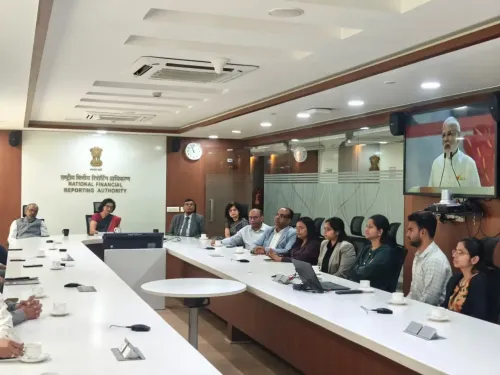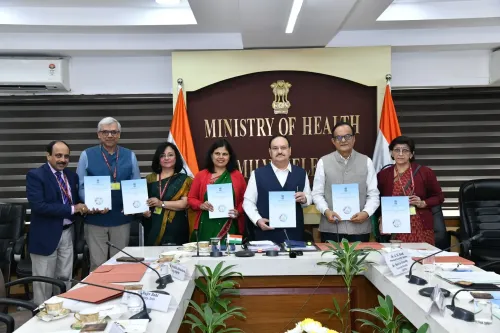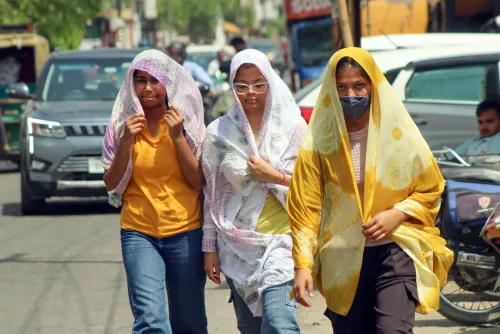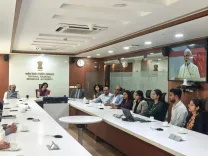How is the National Rabies Control Programme Enhancing Surveillance of Dog Bites Across All States?

Synopsis
Key Takeaways
- NRCP enhances surveillance of dog bites nationwide.
- Free rabies vaccines are available in public health facilities.
- Funding supports healthcare staff training and awareness initiatives.
- National One Health Programme strengthens diagnoses through vet labs.
- Animal activists advocate for community-based solutions.
New Delhi, Aug 19 (NationPress) The National Rabies Control Programme (NRCP) is actively working to bolster the monitoring of dog bite incidents in every state, as stated by Union Minister of State for Health and Family Welfare, Prataprao Jadhav, during a parliamentary session on Tuesday.
In a formal written response in the Rajya Sabha, Jadhav outlined the measures taken to improve rabies treatment throughout the nation.
“The Ministry of Health and Family Welfare, via the National Rabies Control Programme (NRCP), is enhancing the surveillance of all animal bites across all States/UTs. Data concerning dog and other animal bite incidents, along with associated fatalities, are reported by every State/UT through the Integrated Health Information Platform (IHIP),” Jadhav explained.
States receive a designated budget to facilitate the execution of the NRCP under the National Health Mission (NHM).
“This funding encompasses the training of healthcare personnel, acquisition of rabies vaccines, production of Information, Education, and Communication (IEC) materials regarding rabies and dog-bite prevention, data entry assistance, review meetings, monitoring, and the setup of Model Anti-Rabies Clinics and wound-washing facilities,” the Minister elaborated.
Additionally, essential medications such as Anti-Rabies Vaccine (ARV) and Anti-Rabies Serum (ARS)/Rabies Immunoglobulin (RIG) are provided at no cost to public health facilities as part of the National Free Drug Initiative of NHM.
“These medications are also included in both the National and State Essential Drug Lists. Furthermore, under the Central Sector component, the National Centre for Disease Control carries out rabies control initiatives through awareness campaigns, laboratory enhancement, guidelines, and training materials,” Jadhav noted.
He also indicated that the National One Health programme is improving rabies diagnostics through veterinary laboratories across various states.
“To enhance the role of the veterinary sector under the National One Health Programme For Prevention and Control of Zoonosis, committees have been established in all States and veterinary labs to improve the diagnosis of animal rabies,” the Minister added.
To raise awareness among the public and healthcare professionals, protocols for dog bites, IEC materials, and instructional videos on managing animal and dog bite cases have been created and distributed nationwide, Jadhav mentioned.
In the meantime, animal rights activists across the country have voiced their opposition to the Supreme Court's ruling mandating the placement of all stray dogs in shelters within the Delhi-NCR region.
The apex court had taken suo motu cognizance of the alarming increase in dog bite incidents, including the recent tragic death of a six-year-old child in Delhi due to a stray dog attack. During proceedings, the court remarked that immediate action was necessary and directed sterilization and relocation of the dogs to shelters.
However, demonstrators argue that the answer lies not in confinement but rather in scientific sterilization initiatives, community education, and stricter enforcement of pet ownership regulations.
They contend that mass relocation would only exacerbate the issue by overburdening resources and isolating the animals from the communities that often care for and feed them.









